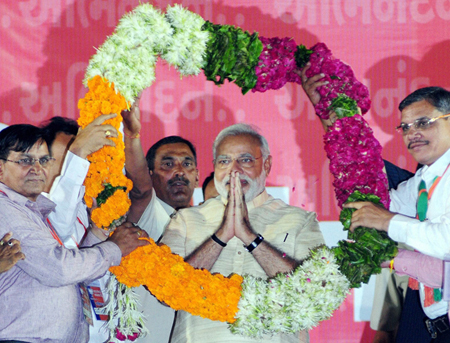Meerut, Jan 8: Hangman Pawan Jallad, who officials say is being considered to carry out the execution of the four Nirbhaya gangrape case convicts, on Tuesday said he is ready for the job which will send out a strong message in the society.
He said executing those who were involved in the horrific crime will bring "great relief" to him, Nirbhaya's parents and everybody else.
Earlier in the day, a Delhi court issued death warrants against all the four convicts in the Nirbhaya gangrape-murder case and ordered that they are hanged on January 22 at 7 am in Tihar jail.
The death warrant, also known as a black warrant, addressed to the office of the Tihar jail chief, was issued by Additional Sessions Judge Satish Kumar Arora against Mukesh (32), Pawan Gupta (25), Vinay Sharma (26) and Akshay Kumar Singh (31).
"I do not have any information regarding the execution, nobody has spoken to me yet. If anyone approaches me, I am ready to do the job. Earlier, I was asked to be ready for the execution on December 16," Pawan Jallad told reporters here.
"Those who were involved in this brutal incident must be hanged, which will send out a strong message in the society," he said.
"Hanging the Nirbhaya gangrape case convicts will certainly bring great relief to me, her parents and everybody else," he added.
Nirbhaya, a 23-year-old paramedic student, was gang-raped and brutalised on the intervening night of December 16-17, 2012, inside a moving bus in south Delhi by the four men, along with two others, before being dumped on the road.
She died on December 29, 2012, at Mount Elizabeth Hospital in Singapore.
Of the six persons convicted, one allegedly committed suicide in jail and another, a juvenile, was released from a reformation home after serving a three-year term.
When contacted, Jail Superintendent of Meerut prison V P Pandey said he has not yet received any letter from Tihar authorities.
"Last month, we had received a letter asking us to keep Pawan Jallad ready but there is no fresh communication. The Delhi court warrants were issued this evening, maybe we will get the letter for sending him by tomorrow (Wednesday)," he said.
The gangrape of 23-year-old, who came to be known as 'Nirbhaya', the fearless one, sparked outrage across the country. Repulsed, people took to the streets across the country, demanding justice for her and better safety measures for women.
The case led to toughening of India's rape laws.
 Gandhinagar, May 21: The Gujarat assembly Wednesday held a special session to bid farewell to outgoing Chief Minister Narendra Modi, who is set to be sworn in as India's next prime minister.
Gandhinagar, May 21: The Gujarat assembly Wednesday held a special session to bid farewell to outgoing Chief Minister Narendra Modi, who is set to be sworn in as India's next prime minister.





Comments
Add new comment